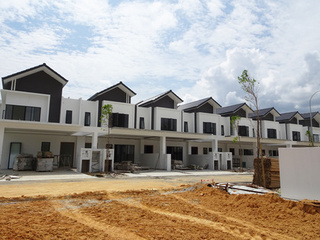
When embarking on a new construction project, there are countless details to manage. From securing permits to ensuring compliance with local building codes, the list of responsibilities is vast. One critical aspect that often gets overlooked in the flurry of activity, however, is title insurance. It might seem like just another expense in the already high cost of building, but title insurance is a crucial safeguard for anyone involved in new construction projects. Read this blog and reach out to our skilled team of Florida construction attorneys to learn more.
What Is Title Insurance, and Why Do You Need It for New Construction?
Title insurance is a policy that protects property owners and lenders against potential claims or disputes over the ownership of a property. For new construction projects, the importance of this insurance cannot be overstated. Although the land on which you’re building may seem unencumbered, there could be hidden risks that can surface later on.
In Florida, where real estate transactions are frequent, title issues are not uncommon. These could range from undiscovered liens and unpaid property taxes to boundary disputes and even fraud. When you purchase a piece of land to build on, you want to be sure that no one else has a legal claim to that property. Without insurance, you could face legal battles, financial losses, and delays in your construction project if any issues arise after you’ve started building.
Consider this: What would happen if, after you’ve invested significant time and money into a construction project, someone steps forward with a legitimate claim to the property? This scenario could result in a halt to construction, potential lawsuits, and the loss of your investment. Title insurance is designed to protect against such eventualities, ensuring that you have the legal right to build on your property without interference.
How Does Title Insurance Benefit Construction Lenders?
It’s not just property owners who need protection; construction lenders also benefit from having this insurance. Lenders require this insurance to protect their investment in the event that a title defect is discovered. Since lenders often provide substantial amounts of money for construction projects, their risk is equally significant.
For example, if a title defect arises that halts the construction, the lender stands to lose the funds they’ve disbursed. Title insurance mitigates this risk by ensuring that the lender’s interest is protected. In fact, most lenders will not release funds for a construction project unless title insurance is in place. This makes having this insurance not only beneficial but also necessary if you plan to finance your construction project through a loan.
Moreover, the title insurance process involves a thorough search of the property’s history, helping to identify any potential issues before construction begins. This preemptive measure is invaluable in avoiding future disputes and delays. Essentially, title insurance serves as a security blanket for both the lender and the property owner, providing peace of mind that the investment is safeguarded.
Can This Help Prevent Future Legal Disputes?
Having title insurance can play a significant role in preventing future legal disputes, particularly in the context of new construction. By conducting a thorough title search and resolving any issues before they become problems, title insurance minimizes the risk of post-construction claims.
The process of securing this insurance involves a detailed examination of public records related to the property. This search can uncover a variety of potential issues, such as undisclosed heirs, incorrect property descriptions, or even past fraudulent transactions.
Furthermore, if a dispute does arise after you’ve begun construction, your insurance policy will cover the legal fees and any potential losses incurred due to the dispute. This protection is invaluable, especially when dealing with complex construction projects where timelines and budgets are already stretched thin.
